If you’re pondering ‘can you metal detect anywhere,’ the simple answer is: not without abiding by the law. Metal detecting is governed by a web of legalities. This article demystifies where you’re allowed to search, breaking down federal, state, and local rules to help you metal detect legally and ethically.
Key Takeaways
- Metal detecting is governed by a layered set of laws, from federal and state regulations to local ordinances, which must be understood and followed to avoid legal issues.
- While there are many legal places to enjoy metal detecting, including private lands with permission and some public parks and beaches, there are strict restrictions on detecting in archaeological sites, historical battlefields, and certain federal lands to preserve heritage.
- The metal detecting community values ethical practices, which includes securing permissions, leaving no trace, and responsibly reporting significant finds to protect and respect history and the environment.
Understanding Metal Detecting Laws and Regulations
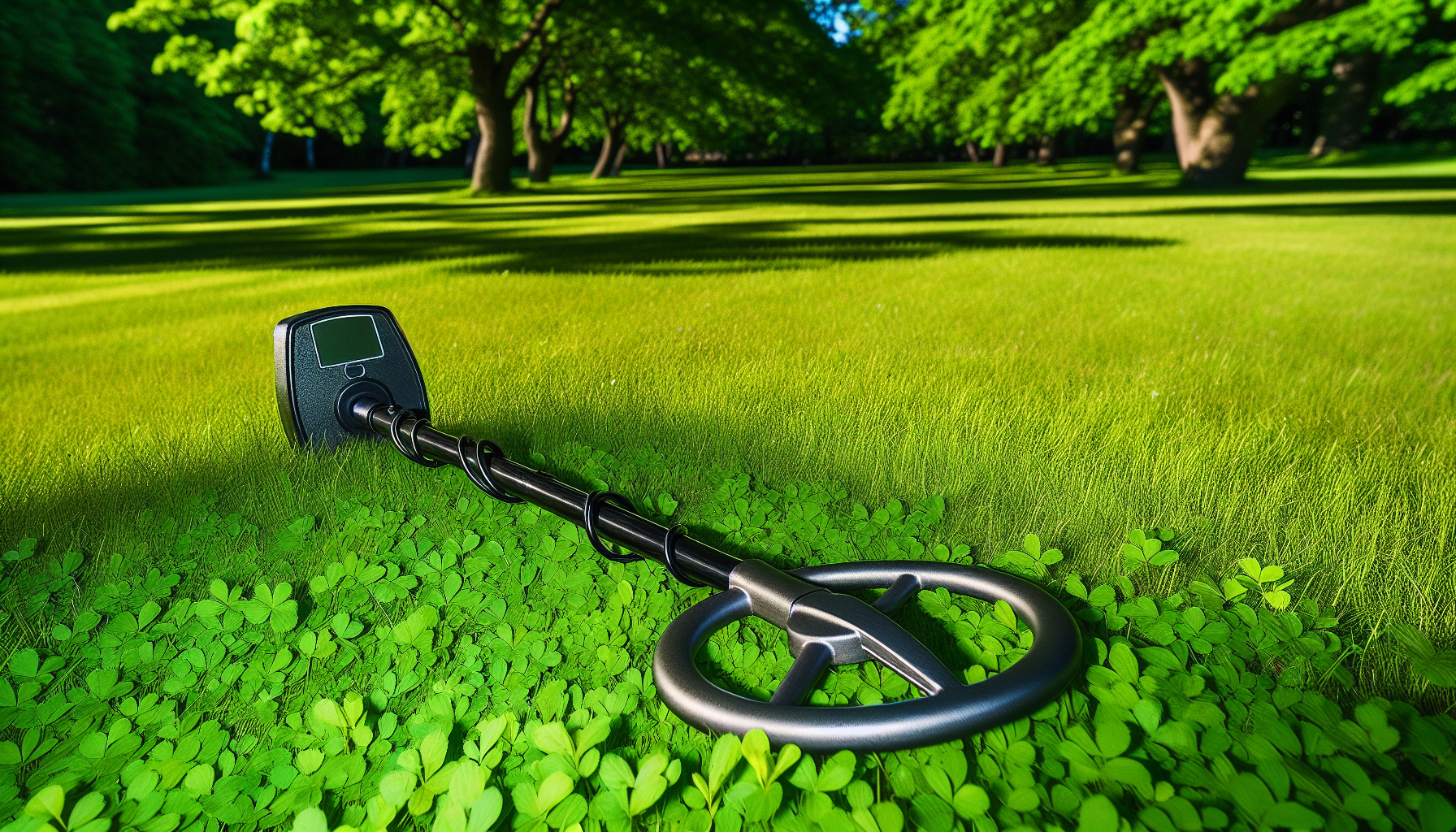
You’ve probably heard the saying, “Ignorance of the law excuses no one.” This is especially true for us metal detectorists. It’s not just about finding the perfect places to metal detect; it’s about understanding the intricate web of metal detecting laws governing our pursuit.
There’s a myriad of federal, state, and local laws that dictate where and how we can use a metal detector. And believe me, navigating these laws can be as challenging as finding a rare coin in an expansive field. But, don’t worry, we’ve got you covered!
The Role of Federal Laws in Metal Detecting
In the U.S., metal detecting activities on federal land are heavily regulated. The Antiquities Act, Federal Preservation Laws, and the National Historic Preservation Act are the figurative ‘big brothers’ of metal detecting. These federal laws protect historical sites and artifacts, making metal detecting in places like National Parks a big no-no. Trust me, the last thing you want is to face felony charges, equipment confiscation, or even arrest!
Therefore, familiarizing yourself with national laws is a necessary step before embarking on your metal detecting journey.
State-Specific Metal Detecting Policies
Just when you thought you had a handle on the federal laws, enter the state-specific policies. Each U.S. state has its own set of metal detecting regulations, and they can be as diverse as the states themselves. For instance, in Wyoming, hobby metal detecting isn’t allowed, whereas states like Vermont and Pennsylvania permit it under specific conditions. Despite the complexity, grasping these regulations is crucial to practicing metal detecting responsibly.
Local Ordinances and Metal Detecting
And then there’s the local level. Yes, local ordinances can also affect where you can use your metal detector. These laws vary from city to city and county to county, making it even more important to check the specific rules in each locality.
For instance, some city parks may require permits for metal detecting or outright prohibit it. Ensure you’re adhering to the law before you commence your quest for old coins beneath the old oak tree in your local park.
Where Can You Legally Use a Metal Detector?
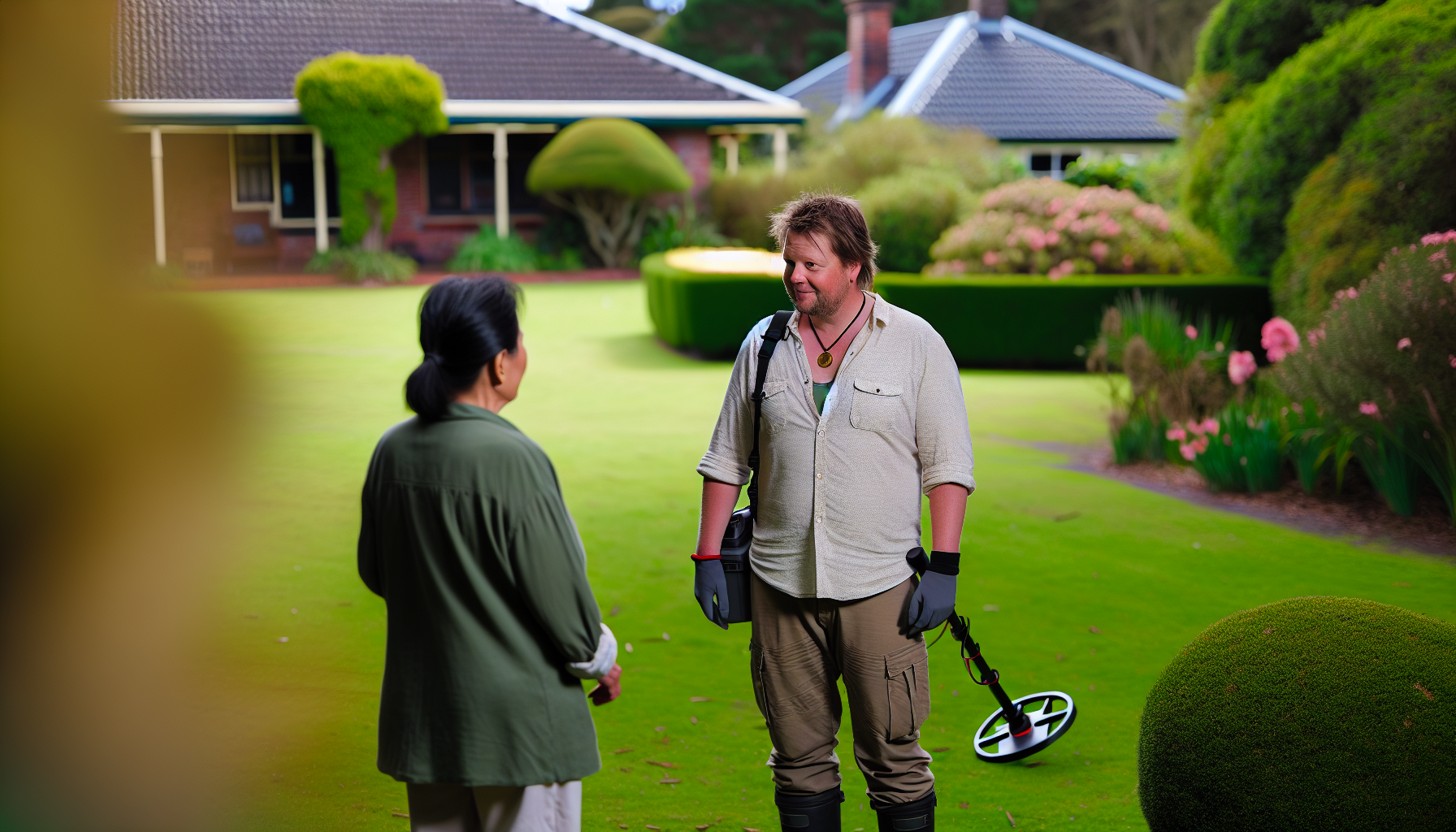
Now that you’ve got a handle on the laws and regulations, let’s get to the exciting part - where can you legally use your metal detector? Well, the good news is there are plenty of places to metal detect, but it requires some legwork. From securing permission from private property owners to understanding the rules on public lands and navigating beach regulations, there’s a lot to consider. But don’t worry, we’re here to guide you through it all!
Private Lands: Securing Owner's Permission
First things first, if you’re planning to metal detect on private property, getting the owner’s permission is a must. It’s not just about being a good neighbor; it’s about avoiding legal issues like trespassing charges. And remember, this applies to all private lands - from private schools and churches to individual homes.
Regardless of whether you’re drawn to the old Victorian house down the street or your local private school’s playground, obtaining written permission prior to using your detector is essential.
Public Parks and Recreational Areas
Metal detecting is a popular activity in public parks and recreational areas. Many people enjoy the thrill of searching for buried treasure using metal detectors in these locations. But remember, these areas are governed by local laws and municipal ordinances. Some parks may require permits or restrict digging in certain areas. And don’t forget about state-specific laws!
For example, in some states, you’ll need to obtain permits from park agencies, including county parks and local parks. Ensure you’re abreast of the local regulations before you commence scanning picnic areas or public beaches.
Beaches and Waterfronts: A Treasure Hunter's Haven
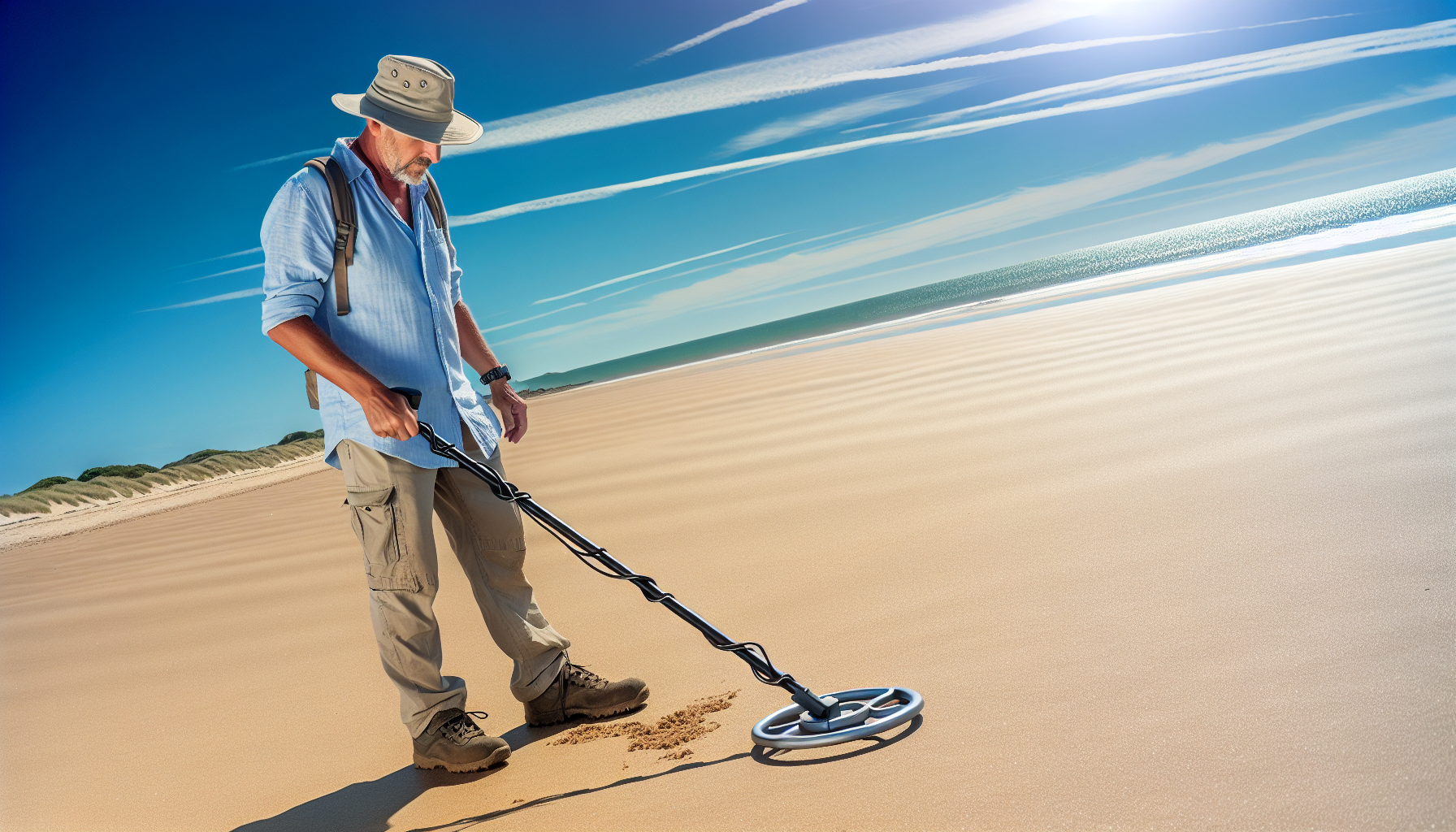
Now, if you’re like me, the lure of the beach is hard to resist. Beaches and waterfronts are usually a treasure hunter’s haven. They’re typically more relaxed about metal detecting, but remember, there may still be region-specific rules and restrictions. You might even come across some beautiful silver jewelry during your treasure hunting adventures.
For instance, while Florida permits metal detecting on most saltwater beaches, North Carolina requires permits for some beaches. Ensure you’re familiar with local regulations before embarking on your seaside treasure hunting adventure.
Navigating Restrictions and No-Go Zones for Metal Detecting
It’s not all fun and games, though. There are certain places where metal detecting is strictly off-limits. These include archaeological sites, historical battlefields, and ghost towns. There are also federal land management policies to consider.
But don’t let this discourage you. Being aware of these restrictions and understanding where you cannot go is just as important as knowing where you can. After all, being a savvy detectorist isn’t just about where you find treasure, but how you go about finding it!
Steering Clear of Archaeological Sites
When it comes to archaeological sites, the rule is simple - steer clear. These sites are legally protected to preserve their cultural value and historical context. This means unauthorized excavation and removal of artifacts are illegal.
Despite the thrill of unearthing a centuries-old artifact, it’s vital to prioritize the preservation of these sites for future study and learning.
Understanding Access to Historical Battlefields and Ghost Towns
Historical battlefields and ghost towns may seem like the perfect hunting grounds for metal detecting enthusiasts. But remember, these sites often require special permissions and adherence to state laws. And for a good reason - these sites are valuable pieces of our history that need to be preserved.
Even though the allure of relic hunting in these areas can be strong, it’s essential to grasp the regulations before proceeding.
Federal Land Management Policies
Federal lands are another area where metal detecting rules apply. Federal land management policies, like those from the Bureau of Land Management and National Forest Service, regulate our hobby on these lands. While some activities are allowed, others, especially those that can harm archaeological sites, are strictly prohibited.
Before venturing out to those national forests or BLM lands, familiarize yourself with these policies.
Seeking Permission: The Ethical Approach to Metal Detecting
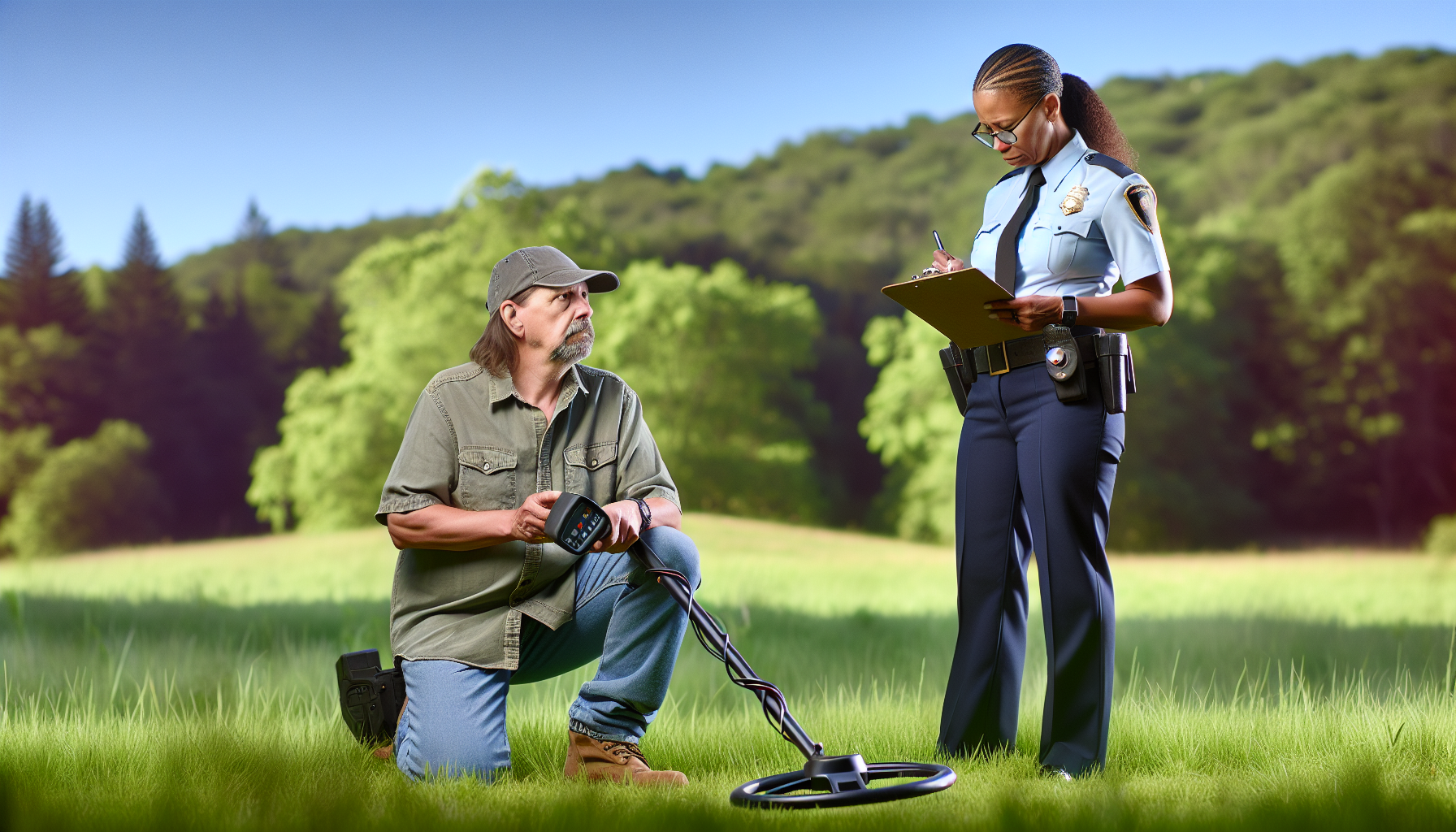
Now, let’s talk about the ethical side of metal detecting. As detectorists, it’s our responsibility to seek permissions, respect private property, and follow ethical practices. This not only helps maintain good relationships with property owners and local authorities but also ensures that we’re preserving our shared history.
After all, metal detecting isn’t just about the thrill of the hunt; it’s about respecting our past and preserving it for future generations, focusing on only metal artifacts.
How to Obtain Written Permission
Obtaining written permission from property owners isn’t just about avoiding legal trouble; it’s also about building trust. When seeking permission, it’s important to present yourself professionally and explain your intentions transparently. And don’t forget to offer to share any significant finds with the property owner - it’s not just about what you can find, but also about what you can give back.
The Importance of Building Relationships with Local Authorities
Building relationships with local authorities is another crucial aspect of being a responsible metal detectorist. Attending public meetings, collaborating with historical societies, and demonstrating responsible practices can all help to build these relationships.
And remember, maintaining good relationships with local authorities can lead to more opportunities and permissions in the future.
Responsible Metal Detecting Practices
Lastly, we’ll address responsible metal detecting practices. This includes:
- Leaving no trace
- Restoring the ground to its original condition
- Reporting significant finds to the appropriate authorities
- Respecting wildlife habitats
- Properly disposing of any trash you find
By following these practices, we can ensure that our hobby remains enjoyable and sustainable for years to come.
Maximizing Your Metal Detecting Experience
Having covered the legal and ethical considerations, it’s time to focus on the enjoyable aspect - enhancing your metal detecting experience! Whether you’re just starting out or you’re a seasoned detectorist, there are plenty of ways to get the most out of your treasure hunting adventures.
From starting in your own backyard to joining local clubs and attending events, there’s a world of opportunities waiting to be discovered!
Start Swinging in Your Own Backyard
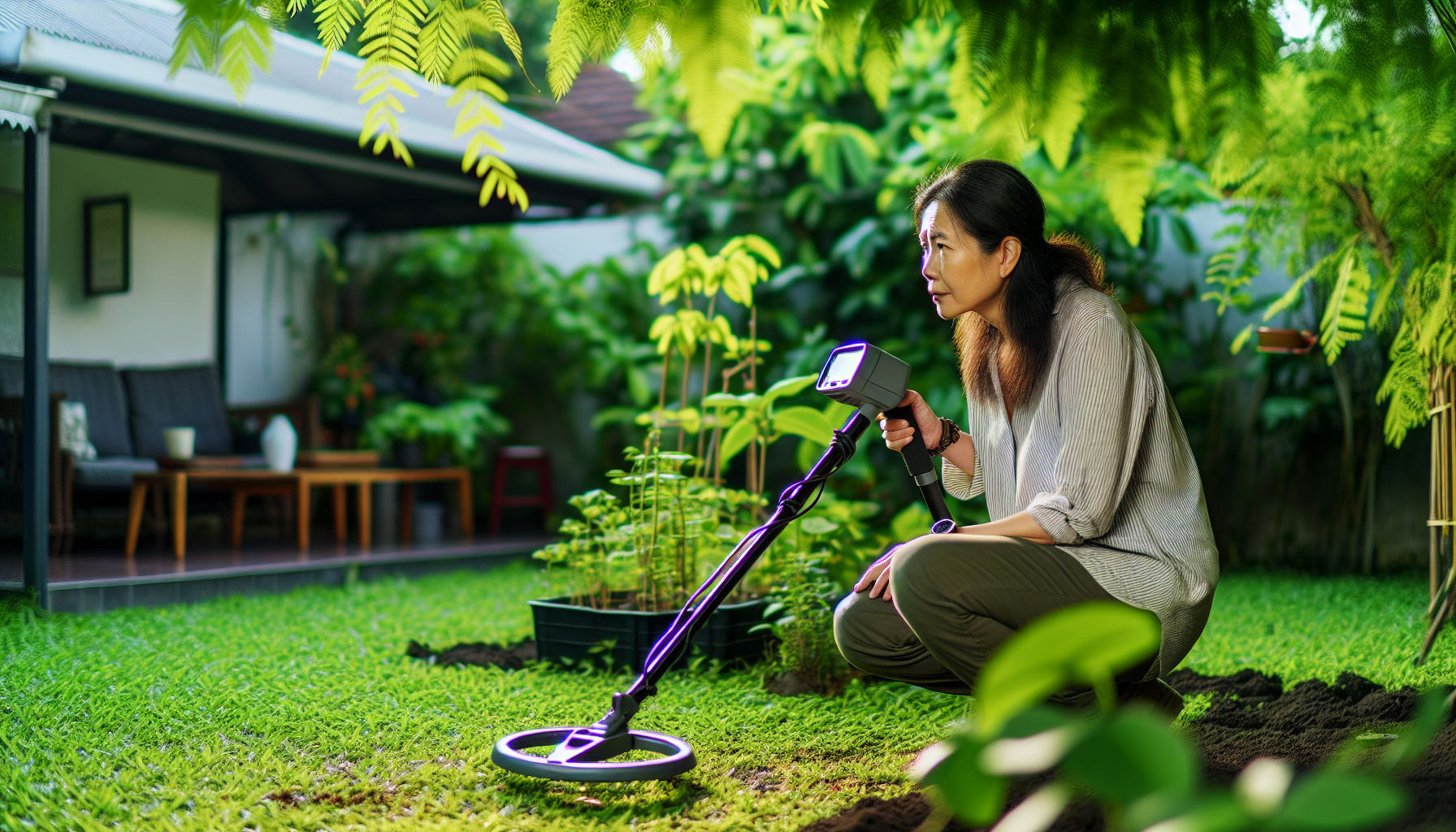
If you’re just starting out, your own backyard is the perfect place to begin your metal detecting journey. It’s a convenient, no-pressure environment where you can get to grips with your detector and learn to interpret its signals. Plus, who knows what treasures you might uncover in your own backyard - lost coins, old toys, or even items of personal significance!
Joining Local Metal Detecting Clubs
Joining a local metal detecting club is another great way to enhance your experience. Here are some benefits of joining a club:
- Sense of camaraderie
- Access to experienced detectorists who can offer tips and advice
- Opportunities for group hunts and competitions, adding an element of fun and excitement to your metal detecting adventures.
Attending Metal Detecting Events and Rallies
Attending metal detecting events and rallies is another fantastic way to maximize your experience. These events offer unique opportunities to:
- Access new sites
- Network with fellow enthusiasts
- Participate in competitions
- Stay up-to-date on the latest technologies and trends in the metal detecting world
Advanced Tips for Seasoned Detectorists
For those of you who’ve been in the game for a while, we’ve got some advanced tips to take your detecting to the next level. From researching historical maps to utilizing modern metal detectors and exploring less-conventional locations, these tips are designed to help you uncover more treasures and make the most of your metal detecting adventures.
Researching Historical Maps and Records
Historical maps and records can be a treasure trove of information for seasoned detectorists. These resources can reveal prime detecting locations on public land by showcasing landscape changes and past gathering spots.
Invest some time exploring these historical records before your next treasure hunt to find lost coins. The treasures you could discover are unpredictable!
Utilizing Technology and Modern Metal Detectors
In the world of metal detecting, technology is your friend. Modern metal detectors come equipped with advanced technology that can significantly improve detection accuracy and depth. From multi-frequency technology to Pulse Induction (PI) and Digital Target ID, these features can help you uncover more items and make your hunts more successful.
Exploring Less-Conventional Locations
While parks and beaches are popular metal detecting locations, don’t be afraid to think outside the box. Less-conventional locations, such as abandoned houses and ghost towns, can lead to rare discoveries and hidden treasures.
Consider adding some variety to your next hunt - the results could be pleasantly surprising!
Summary
So there you have it - a comprehensive guide to metal detecting laws, the ethical approach to seeking permission, and tips to maximize your metal detecting experience. By understanding the laws, seeking appropriate permissions, and adopting responsible practices, we can ensure that our hobby remains enjoyable and respectful of our shared history. So, armed with this knowledge, why not embark on your next treasure hunt? Happy hunting!
Frequently Asked Questions
Where are you not allowed to use a metal detector?
You're not allowed to use a metal detector at state historical sites, state Native American burial grounds, and other state archaeological sites. So, make sure to respect these areas when exploring.
Can I metal detect in local woods?
Yes, you can metal detect in local woods as long as you respect the rules and fill in any holes you dig. Just be sure to research and look for any signs that prohibit metal detecting in the area.
Can I metal detect on a beach?
Yes, you can metal detect on a beach, especially at low tide when the water has washed away some sand, exposing objects that may be buried deeper. Just make sure to sweep the beach in a grid pattern to cover the area thoroughly.
Where to metal detect?
You can find good places to metal detect by searching for "The Top 10 Places to Metal Detect." Happy hunting!
Do I need permission to metal detect on private property?
Yes, you need to get the property owner's permission before metal detecting on private property.
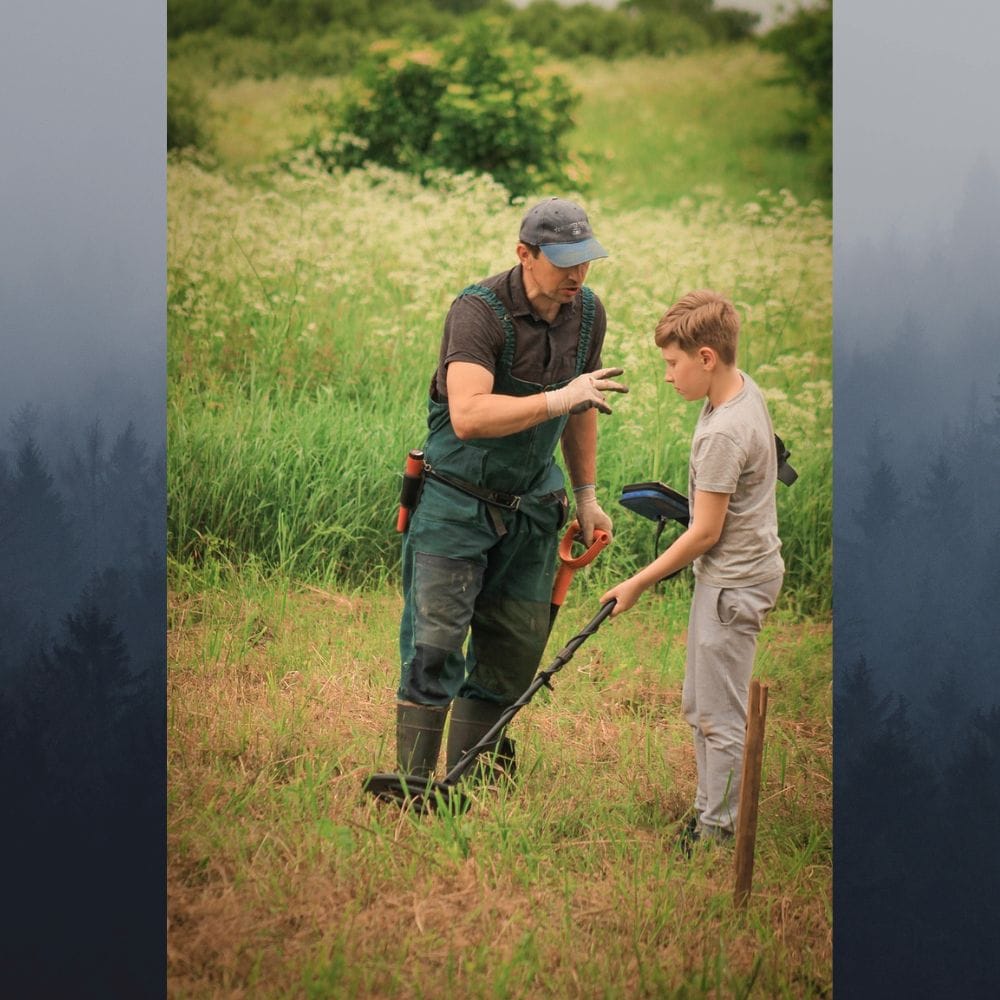






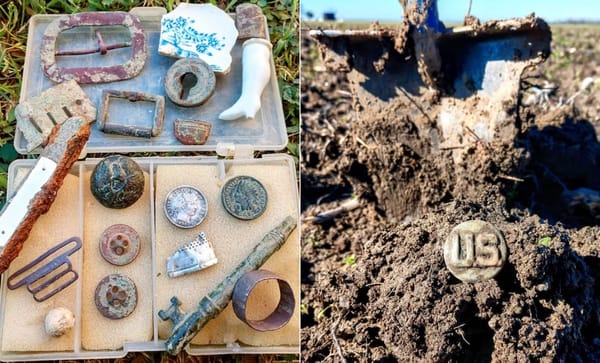
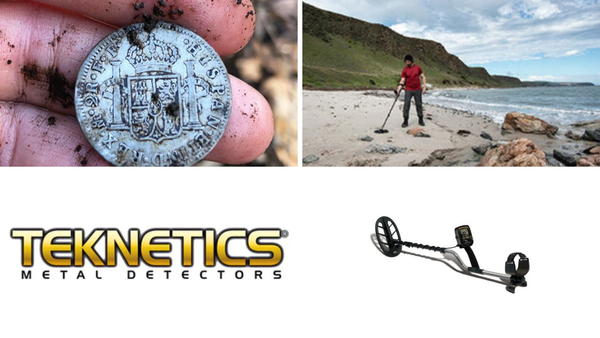
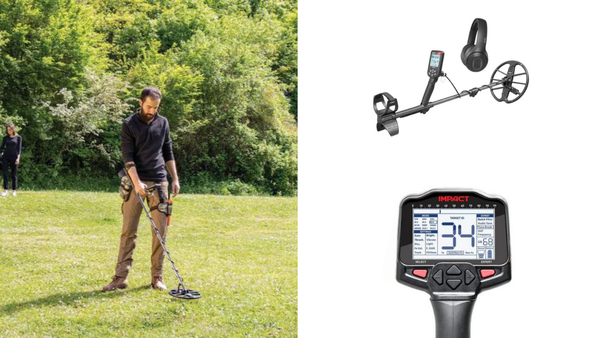
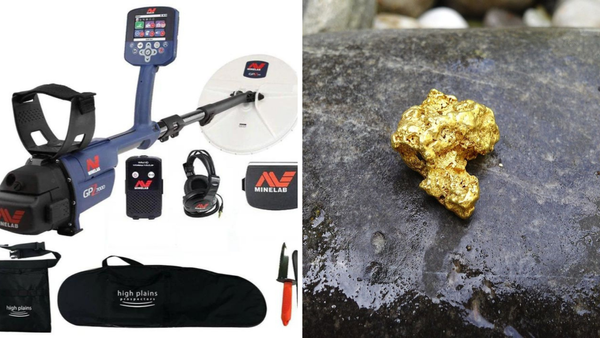
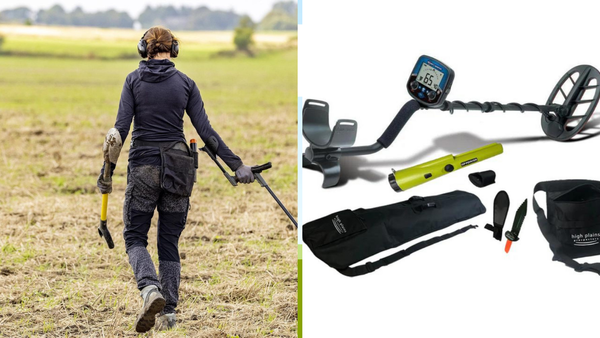
Member discussion